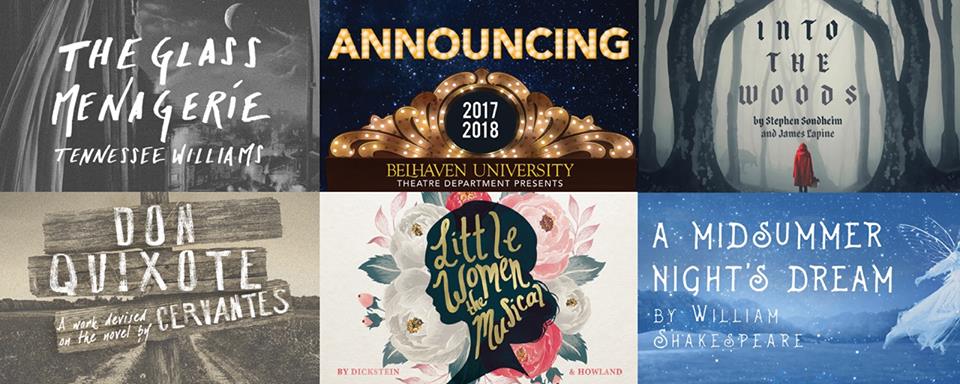Student-directed Look Away will kick off the spring season of shows at Belhaven. Student blogger, Eric Henderson shares his thoughts on this stirring piece of theatre being produced in our Second Stage space.
‘Everyone on the train seems to be reading my letters. I heard one man refer to me as though I were dead.’
-Mary Todd Lincoln, Look Away
It is my pleasure to announce that on Thursday February 12th, 2015 a two-act play based on Mary Todd Lincoln and her seamstress and confidant, Elizabeth Keckley will kick off our spring semester of shows. This compelling production is based upon the life and letters Mrs. Lincoln wrote to friends and family during President Lincoln’s terms, after his assassination, and during her stay in the Bellevue Hospital for the insane.
The action of the play occurs in that hospital on Mary Todd Lincoln’s last night of residence before her sanity hearing. A stirring journey toward hope and recovery through avenues of grief, the first show of our spring season is not to be missed. Look Away was first presented at the Playhouse Theatre in New York City on January 7, 1973 with Geraldine Page as Mary Todd Lincoln and Maya Angelou as Elizabeth Keckley.
Belhaven University’s Theatre department prides itself on seeing their students explore their truest potential. With that being said, senior Theatre Production major Anna Bryant directs the show with conviction, enthusiasm, and fervor. Bryant says, “Mary Lincoln and I have the bond of both being Kentucky-born. Her story pulls at the very heartstrings of life. This story has tragedy, love, and friendship intertwined together giving you the woman who stood faithfully by one of the greatest presidents of the United States of America.”
Look Away by Jerome Kilty runs Thursday, February 12th through Saturday, February 14th with performances nightly at 7:30 PM in our Second Stage space located in the Center for the Arts. Tickets are $10 for adults, $5 for students and senior citizens. Admission is free for Belhaven students, faculty, staff and their immediate families. For reservations, call 601-965-7026.
